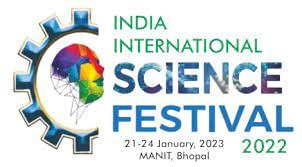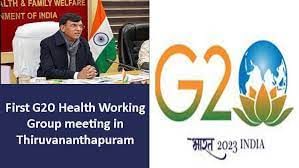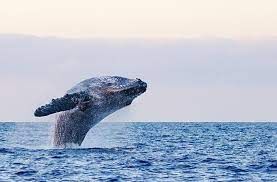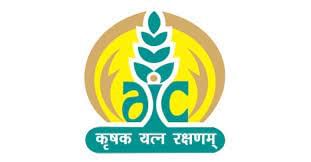UPSC Daily Current Affairs- 22nd January 2023 | Current Affairs & Hindu Analysis: Daily, Weekly & Monthly PDF Download
GS-I
What is Assam’s Charaideo Maidam?
Context
Assam Chief Minister recently said that the Central Government has decided to send a proposal to UNESCO nominating Charaideo Maidam of Ahom Kingdom as a World Heritage Site.
What is Charaideo Maidam?
- Charaideo commonly known as ‘Pyramids of Assam’ was the original capital of the Ahom Kings.
- Charaideo remained the symbolic center of Ahom Kingdom even though the capital of the kingdom moved many times.
- It was built by Chaolung Sukhapa the founder of the dynasty in about 1229 CE.
- Location: Located at the foothills of Nagaland, it’s situated at a distance of around 30 KM from the historical Sivsagar town in Assam.
- Why is Charaideo known as ‘Pyramids of Assam’?
- It contains sacred burial grounds of Ahom kings and queens and is also the place of the ancestral Gods of the Ahoms.
- Some 42 tombs (Maidams) of Ahom kings and queens are present at Charaideo hillocks.
- Architecture: It comprises a massive underground vault with one or more chambers having domical superstructure and covered by a heap of earthen mound and externally it appears a hemispherical mound.
Ahom Dynasty:
- It was founded by Chaolung Sukapha , who entered the Brahmaputra valley in 1228.
- They ruled Assam for six centuries.
- The Ahoms created a new state by taking over the older political system of the bhuiyans (landlords).
- The Ahom administration was a monarchial government with democratic and aristocratic values as well.
- Ahom society was divided into clans and with the expansion of the kingdom, the clans moved and took charge of the designated territory.
- The Ahoms followed stringent travel policies to protect their motherland against the foreign invaders for inward travel.
- In the 17th century, the Ahom rule got weakened due to multiple Burmese invasions and internal conflicts.
- Ahom Kingdom was annexed by the British East India Company after the Treaty of Yandabo in 1826.
Source: Indian Express
GS-II
First G20 Health Working Group
Context
The first G20 Health Working Group meeting under India's presidency was held in Thiruvananthapuram in Kerala.
About First G20 Health Working Group:
- Various discussions are being held focussing on international cooperation for Universal health care, in the three-day conference.
- Discussions on strengthening medical value travel enabling easy travel to countries with low cost treatment facilities and also on holistic health care through the integration of traditional methods of treatment like Ayurveda were held.
Three priorities for the G20 Health Track:
- Priority I: Health Emergencies Prevention, Preparedness and Response (with focus on One Health & AMR).
- Priority II: Strengthening Cooperation in Pharmaceutical Sector with focus on Access and Availability to safe, effective, quality and Affordable Medical Countermeasures (Vaccines, Therapeutics and Diagnostics).
- Priority III: Digital Health Innovations and Solutions to Aid Universal Health Coverage and Improve Healthcare Service Delivery.
History:
- The G20 Health Working Group (HWG) was established under the German Presidency in 2017 to develop a shared international agenda on issues such as strengthening health-care systems, reducing malnutrition, health-crisis management and scaling up the fight against pandemics.
- India assumed presidency of the G20 on 1st December 2022.
- India is currently part of the G20 Troika comprising Indonesia, India and Brazil, marking the first time that the troika is consisting of three developing and emerging economies.
Source: The Hindu
Regulating Promotions on Social Media
Context
The Centre has released endorsement guidelines for celebrities and social media influencers that mandates compulsory disclosure of monetary or material benefits of a product or a brand they are promoting through their social media platforms.
What is the New Guideline for Enforcement on Social Media?
- Disclosure Norms:
- Disclosures must be prominently and clearly displayed in the endorsement and terms such as ‘advertisement’, ‘sponsored’ or ‘paid promotion’ should be used for all sorts of endorsements.
- It aims to ensure that individuals do not mislead their audiences through unfair trading practices when endorsing products or services and that they are in compliance with the Consumer Protection Act 2019 and any associated rules or guidelines.
- Disclosures should not be mixed with a group of hashtags or links. Also, in the case of a live stream, disclosures should be displayed continuously and prominently during the entire stream on social media.
- Penalty:
- If there are any violations, the penalty prescribed for misleading advertisements under the Consumer Protection Act 2019 will be applicable.
- In that case, the Central Consumer Protection Authority (CCPA) can impose a penalty of up to ₹ 10 lakh on manufacturers, advertisers and endorsers and for repeated offences, a penalty of up to ₹ 50 lakh can be imposed.
- The CCPA can also prohibit the endorser of a misleading advertisement from making any endorsement for up to one year and for subsequent contravention, prohibition can extend up to three years.
What is the Extent of Consumption of Social Media in India?
- Extent of Social Media in India:
- According to the Global Statistics, in India, the number of social media users is growing at a steady rate of 467 million in 2022 due to deep penetration of internet connectivity among people.
- Also, overall the number of Internet users in India has grown to a whopping 658 million, which is roughly 47% of the total population of India.
- Benefits of Social Media:
- Democratization of Information: Social media is allowing the democratization of knowledge and broader communication. Billions of netizens around the world now feel empowered to bypass traditional curators of information.
- They have also become creators and disseminators of content, not just consumers of it.
- Direct Interaction with Government: Today social media has empowered common people to directly interact with the government and avail government services directly.
- Common people tagging Railway and other ministries and the agencies responding to them is common news these days.
- Promote Creativity and Self-expression: Social media provides a platform for users to share their ideas, thoughts, and creativity with the world.
- Increased Customer Engagement: Social media allows businesses to engage with their customers in a way that was not possible before, allowing for more personalized and effective customer service.
- Social media is a cost-effective way for businesses to market and advertise their products and services.
- Democratization of Information: Social media is allowing the democratization of knowledge and broader communication. Billions of netizens around the world now feel empowered to bypass traditional curators of information.
- Challenges Related to Social Media:
- Misleading Advertising: Social media platforms are often used to advertise products and services, but some businesses use misleading or false advertising, which is an unfair trading practice.
- Social media platforms are also used to post product reviews by influencers, but some reviews may be fake or biased, which can be misleading to consumers and also a violation of fair-trading practices.
- Cyberbullying and harassment: Social media has become a breeding ground for cyberbullying and harassment, leading to mental health issues and even suicide in some cases.
- Privacy Concerns: Social media platforms collect and store large amounts of personal data, raising concerns about privacy and data security.
- Lack of Regulation and Polarisation: Social media platforms operate with little regulation, which can lead to harmful content, fake news, and hate speech.
- Also, social media can create an echo chamber effect where people are exposed to similar views and opinions, causing polarization in society.
Way Forward
- Social Awareness: A digitally literate country is the need of the hour. Responsible social media use must be taught at every school and college in the country and especially in the rural areas where people can be easily manipulated.
- Stricter Content Moderation: Social media companies will need to implement stricter content moderation policies and more robust systems for identifying and removing harmful content.
- This would help in reducing the spread of misinformation, hate speech, and other harmful content on their platforms.
- A Dedicated Social Media Policy: A holistic policy to regulate social media by creating accountability of social media platforms to not target youth as consumers or future consumers.
- This will make the algorithms more attuned towards adults rather than youth.
Source: The Hindu
GS-III
Genes of Whales
Context
New research in Scientific Reports reveals the genes that likely allowed whales to grow to giant sizes compared to their ancestors,
The role of four genes:
- GHSR is a gene involved in releasing growth hormone through the pituitary gland, body weight, energy metabolism, appetite and fat accumulation. It also is associated with controlling cell proliferation and programmed cell death. Tumors essentially are formed by runaway cell growth.
- IGFBP7 is a gene involved in promoting cell growth and division. There is evidence it acts as a cancer suppressor in prostate, breast, lung and colorectal tumors.
- NCAPG, a gene associated with growth in people, horses, donkeys, cattle, pigs and chickens, is linked to increased body size, weight gain, cell proliferation and cell life cycles.
- PLAG1, a gene associated with body growth in cattle, pigs, and sheep, is involved in embryo growth and cell survival.
Whales:
- Cetaceans, the marine mammal group encompassing whales, dolphins and porpoises, evolved around 50 million years ago from vaguely wolf-like land-based ancestors that belonged to a mammalian assemblage called artiodactyls that includes today’s cows, pigs, sheep and many others.
- Basilosaurus, a toothed apex predator from about 40 million years ago, was the largest-known early whale. The baleen whale lineage dates to roughly 36 million years ago, starting modest in size.
- Blue whales can reach about 100 feet (30 meters) long, fin whales about 80 feet (24 meters), sperm and bowhead whales about 60 feet (18 meters), humpback and right whales about 50 feet (15 meters) and gray whales about 45 feet (13.5 meters).
What is the Agriculture Insurance Company of India (AIC)?
Context
The public sector Agriculture Insurance Company of India (AIC) recently released meagre sums such as 4 paise, 1, 10, and 20 as compensation against claims for damage to kharif crops of 2021, leaving farmers in Rajasthan's Barmer area confused and unhappy.
About Agriculture Insurance Company of India (AIC):
- It was incorporated under the Indian Companies Act 1956 on 20th December, 2002.
- The company has an authorized capital of Rs. 1500 crore and paid-up share capital of Rs. 200 Crores.
- The Company is under administrative control of the Ministry of Finance.
- It is the biggest crop insurance company in the world (20 million farmers covered).
- It is headquartered at New Delhi, India.
- It is promoted by 6 Public Sector Financial Institution General Insurance Corporation, New India Assurance Company, Oriental Insurance Company, National Insurance Company, United India Insurance Company and NABARD.:
- AIC provides weather & yield-based crop insurance schemes in over 500 districts of India.
- AIC provides insurance cover to the farmers for financial losses arising from the failure of the crop (mentioned in insurance scheme) resulting from the pests, diseases, and natural calamities.
Source: Indian Express
India International Science Festival 2022

Context
The 8th edition of the India International Science Festival (IISF) was recently inaugurated at the Maulana Azad National Institute of Technology (MANIT), Bhopal.
About India International Science Festival:
- It is an initiative of the Ministry of Science and Technology and Ministry of Earth Science of Government of India in association with Vijnana Bharati which is a science movement with Swadeshi spirit led by eminent scientists of the country.
- It is a festival to celebrate the achievements of India’s scientific and technological advancements with students, innovators, craftsmen, farmers, scientists and technocrats from India and abroad.
- ISF provides opportunities to people and scientific fraternity in the country and abroad to come together and work together.
IISF 2022:
- Location: Bhopal, Madhya Pradesh.
- It is the eighth edition since its inception in 2015.
- Theme: ‘Marching towards Amrit Kaal with Science, Technology, and Innovation’
- IISF 2022 is a four day festival and will feature 14 thematic events.
Source: Indian Express
|
38 videos|5288 docs|1117 tests
|
FAQs on UPSC Daily Current Affairs- 22nd January 2023 - Current Affairs & Hindu Analysis: Daily, Weekly & Monthly
| 1. What are the three main subjects covered in the UPSC exam? |  |
| 2. What is the importance of General Studies Paper I in the UPSC exam? |  |
| 3. How does General Studies Paper II differ from the other papers in the UPSC exam? |  |
| 4. What are some key areas covered in General Studies Paper III of the UPSC exam? |  |
| 5. How can one prepare effectively for the General Studies papers in the UPSC exam? |  |


























